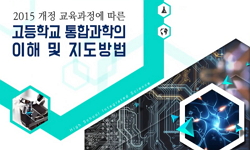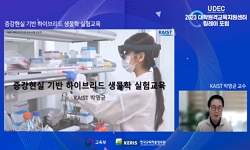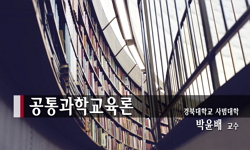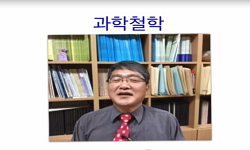The purpose of this study was to investigate elementary school teachers' perceptions about integrated instruction and integrative STEM education and to draw recommendations for introducing integrative STEM education. To accomplish this purpose, this s...
http://chineseinput.net/에서 pinyin(병음)방식으로 중국어를 변환할 수 있습니다.
변환된 중국어를 복사하여 사용하시면 됩니다.
- 中文 을 입력하시려면 zhongwen을 입력하시고 space를누르시면됩니다.
- 北京 을 입력하시려면 beijing을 입력하시고 space를 누르시면 됩니다.

통합 교육과 통합 STEM 교육에 대한 초등교사의 인식 = Elementary School Teachers' Perceptions on Integrated Education and Integrative STEM Education
한글로보기https://www.riss.kr/link?id=A104048466
- 저자
- 발행기관
- 학술지명
- 권호사항
-
발행연도
2011
-
작성언어
Korean
-
주제어
Elementary School Teacher ; Integrated education ; STEM education ; Science Education ; Technology Education ; Mathematics Education ; Elementary School Teacher ; Integrated education ; STEM education ; Science Education ; Technology Education ; Mathematics Education ; 초등 교사 ; 통합 교육 ; STEM 교육 ; 과학 교육 ; 기술 교육 ; 수학 교육
-
등재정보
KCI등재
-
자료형태
학술저널
-
수록면
117-139(23쪽)
-
KCI 피인용횟수
23
- 제공처
-
0
상세조회 -
0
다운로드
부가정보
다국어 초록 (Multilingual Abstract)
The purpose of this study was to investigate elementary school teachers' perceptions about integrated instruction and integrative STEM education and to draw recommendations for introducing integrative STEM education. To accomplish this purpose, this study investigated 216 elementary school in-service teachers in Daegu-city and Kyungbuk province. The results are as follows: First, the integrative instruction among subjects in elementary school had not been implemented well because of their burden for the integrative instruction and insufficient research with respect to the relevant integrations among school subjects. Second, the elementary school teachers presented positive perception toward integrative instruction because it can help students apply concept or ability to real-life situations and increase students' creative thinking. They also recognized the need to extend the idea of integrative instruction in their classrooms. Third, the elementary school teachers have utilized only certain types of integrative instruction and were not sufficient in their competency to apply relevant integrative instruction models. Fourth, elementary school teachers were not fully aware of integrative STEM education, but have perceived positively about the need. Fifth, elementary school teachers presented perceived reasons for implementing integrative STEM education: Increasing students' creativity and thinking skills and cultivating application skills in real life. Sixth, elementary school teachers perceived that educational programs' development and distribution were firstly needed for introducing integrative STEM instruction and their understanding toward integrative STEM instruction was significantly needed. Seventh, elementary school teachers had consented the integrative STEM education programs based on science subject because that could be applied to various subjects. Eighth, elementary school teachers had perceived that integrative STEM education programs should be developed with several concentrations to promote creative thinking and problem-solving, learning interest for STEM-related subjects, and relevance with real life. Finally, Elementary school teachers had expected positive impact on developing human resource in the fields of science and technology through integrative STEM education.
국문 초록 (Abstract)
이 연구의 목적은 초등학교에서 이루어지고 있는 통합 수업과 통합 STEM 교육에 대한 초등학교 교사들의 인식을 조사하여 통합 STEM 교육을 도입하기 위한 시사점을 도출하는 데 있다. 이를 위...
이 연구의 목적은 초등학교에서 이루어지고 있는 통합 수업과 통합 STEM 교육에 대한 초등학교 교사들의 인식을 조사하여 통합 STEM 교육을 도입하기 위한 시사점을 도출하는 데 있다. 이를 위해 대구와 경북 지역에 근무하고 있는 216명의 교사들을 대상으로 설문지를 제작하여 조사를 실시하였으며 결과는 다음과 같다. 첫째, 초등학교에서는 교과 간 통합 수업이 잘 이루어지지 않고 있었으며, 그 원인은 통합 수업 준비에 대한 부담, 교과 간 관련성에 대한 연구 부족 순으로 나타났다. 둘째, 초등 교사들은 통합 수업에 대하여 개념이나 기능의 전이가 용이하기 때문에, 창의적인 사고력과 실생활에서의 적용력을 기를 수 있기 때문에 등의 이유로 긍정적으로 생각하고 있는 것으로 나타났으며, 통합 수업 비중 확대가 필요하다고 하였다. 셋째, 초등 교사들은 교과 간 다양한 통합 수업의 유형에 대해서는 일부 유형만을 주로 사용하는 것으로 나타나 통합 수업 유형을 자유롭게 적용할 수 있는 능력을 갖추지 못한 것으로 분석되었다. 넷째, 통합 STEM 교육에 대하여 초등 교사들은 잘 모르고 있으나 필요성에 대해서는 긍정적으로 생각하는 것으로 나타났다. 다섯째, 초등 교사 들은 통합 STEM 교육이 필요한 이유에 대하여 창의력과 사고력 배양에 도움이 되기 때문에, 실생활에서의 적용력을 기를 수 있기 때문에 순으로 생각하는 것으로 나타나 통합 수업에 대한 생각과 일치하였다. 여섯째, 초등 교사들은 통합 STEM 교육을 도입하기 위해서는 통합 STEM 교육 프로그램의 개발 및 보급과 통합 STEM 교육에 대한 교사의 이해가 가장 필요하다고 생각하였다. 일곱째, 초등 교사들은 통합 STEM 교육 프로그램은 과학 교과를 중심으로 구성하는 것에 찬성하는 비중이 가장 높았고 그 이유는 다양한 분야에 응용할 수 있기 때문이라고 하였다. 여덟째, 초등 교사들은 통합 STEM 교육 프로그램은 창의적인 사고력 및 문제해결력 증진, STEM 관련 교과에 대한 학습 흥미 증진, 실생활과의 관련성의 순으로 중점을 두어 개발해야 한다고 생각하였다. 마지막으로 초등 교사들은 통합 STEM 교육이 과학기술 분야 인재양성에 긍정적인 영향을 줄 것으로 기대하였다.
참고문헌 (Reference)
1 권재술, "학문중심 과학교육의 문제점과 생활소재의 과학 교재화 방안" 11 (11): 117-126, 1991
2 곽병선, "통합교육과정의 이론과 실제" 교육과학사 1983
3 나장함, "통합교육과정에 대한 교사들의 인식 탐구" 한국교육과정학회 22 (22): 101-124, 2004
4 교육과학기술부, "초 중등학교 교육과정 총론" 교육과학기술부 2009
5 강순희, "창의성의 기저가 되는 가설 연역적 사고력 신장을 고려한 과학 교수인 STS 수업 전략의 효과 - 화학 Ⅰ의 물 단원" 한국과학교육학회 25 (25): 327-335, 2005
6 박수경, "중학교 과학수업을 위한 주제중심 통합단원의 개발 및 효과 분석" 한국지구과학회 22 (22): 350-359, 2001
7 정은영, "중학교 과학 교과서와 수업에 반영된 STS 내용 분석" 한국과학교육학회 24 (24): 659-667, 2004
8 한학범, "주제중심학습이 고학년 아동의 학업성취와 자기주도적 학습력에 미치는 영향" 한국통합교육과정학회 3 (3): 111-134, 2009
9 최미정, "주제중심의 초등영어 수준별 통합수업의 인지적·정의적 효과" 한국초등영어교육학회 15 (15): 31-57, 2009
10 김영수, "주제중심 통합학습이 초등학교 저학년 아동의 학습동기와 학업성취에 미치는 영향" 한국통합교육과정학회 2 (2): 21-40, 2008
1 권재술, "학문중심 과학교육의 문제점과 생활소재의 과학 교재화 방안" 11 (11): 117-126, 1991
2 곽병선, "통합교육과정의 이론과 실제" 교육과학사 1983
3 나장함, "통합교육과정에 대한 교사들의 인식 탐구" 한국교육과정학회 22 (22): 101-124, 2004
4 교육과학기술부, "초 중등학교 교육과정 총론" 교육과학기술부 2009
5 강순희, "창의성의 기저가 되는 가설 연역적 사고력 신장을 고려한 과학 교수인 STS 수업 전략의 효과 - 화학 Ⅰ의 물 단원" 한국과학교육학회 25 (25): 327-335, 2005
6 박수경, "중학교 과학수업을 위한 주제중심 통합단원의 개발 및 효과 분석" 한국지구과학회 22 (22): 350-359, 2001
7 정은영, "중학교 과학 교과서와 수업에 반영된 STS 내용 분석" 한국과학교육학회 24 (24): 659-667, 2004
8 한학범, "주제중심학습이 고학년 아동의 학업성취와 자기주도적 학습력에 미치는 영향" 한국통합교육과정학회 3 (3): 111-134, 2009
9 최미정, "주제중심의 초등영어 수준별 통합수업의 인지적·정의적 효과" 한국초등영어교육학회 15 (15): 31-57, 2009
10 김영수, "주제중심 통합학습이 초등학교 저학년 아동의 학습동기와 학업성취에 미치는 영향" 한국통합교육과정학회 2 (2): 21-40, 2008
11 고한중, "제 7차 교육과정에 의한 초등하교 과학 교과서의 STS 내용 분석" 한국초등과학교육학회 21 (21): 289-296, 2002
12 홍정림, "의사결정을 중심으로 한 STS 수업이 학생들의 과학에 대한 태도 및 STS에 관한 인식에 미치는 효과" 21 (21): 422-432, 2001
13 임길선, "웹기반 STS 생물학습 프로그램이 과학교등학교 학생들의 학습 동기 향상에 미치는 효과" 35 (35): 298-306, 2004
14 신영준, "여학생 친화적 과학 수업 전략이 반영된 문제중심 간학문적 프로그램의 효과" 28 (28): 100-109, 2000
15 김숙자, "수학과 과학 관련 수업 분석에 터 한 실천적 접근으로서의 수학과 과학 통합 교육 활동" 미래유아교육학회 9 (9): 221-250, 2002
16 전수진, "미술과와 과학과 문제중심 통합수업이 학습동기와 학업성취도에 미치는 영향:초등 3학년을 중심으로" 이화여자대학교 2009
17 김진수, "기술교육의 새로운 통합교육 방법인 STEM 교육의 탐색" 한국기술교육학회 7 (7): 1-29, 2007
18 한국교육과정평가원, "국제 학업성취도 평가(TIMSS/PISA)에서 나타난 우리나라 중·고등학생의 성취 변화의 특성" 2008
19 김재복, "교육과정의 통합적 접근" 교육과학사 1984
20 이영만, "교육과정 통합에 비추어 본 사고교육의 접근 방식" 7 : 65-81, 1994
21 Fogarty, R, "교사를 위한 교육과정 통합의 방법" 원미사 1998
22 교육과학기술부, "과학과교육과정[별책9]" 교육과학기술부 2009
23 손연아, "과학과 통합교육과정의 이해와 운영의 실제" 43-77, 2009
24 배선아, "공업계열 전문계 고등학교 화공 분야의 STEM 교육에 대한 화공교사의 인식과 요구" 대한공업교육학회 35 (35): 44-67, 2010
25 Son, Y., "theoretical study to formulate the direction of integrated science education" 19 (19): 41-61, 1999
26 Venville, G., "integration of science, mathematics, and technology in a discipline-based culture" 98 (98): 294-302, 1998
27 Davison, D. M., "What does integration of science and mathematics really mean" 95 (95): 226-230, 1995
28 Puntambekar, S., "Toward implementing distributed scaffolding: Helping students learn science from design" 42 (42): 185-217, 2005
29 Lawton. D, "Theory and practise of curriculum studies" Rouledge & Kegan Paul 1978
30 Berlin, D. F., "TheBerlin-White Integrated Science and Mathematics Model" 94 (94): 2-4, 1994
31 Norton, S. J, "The use of design practice to teach mathematics and science" 18 (18): 19-44, 2006
32 Cantrell, P., "The effects of engineering modules on student learning in middle school science classrooms" 95 (95): 301-309, 2006
33 Kuenzi, J. J, "Science, Technology, Engineering, and Mathematics (STEM) Education: Background, fedeal policy, and legislative action" 2008
34 Collette. A. T., "Science instruction in the middle and secondary school - second edition" Merril Publishing Company 1989
35 Sanders, M, "STEM, STEM education, STEM mania" 68 (68): 20-26, 2009
36 문대영, "STEM 통합 접근의 사전 공학교육 프로그램 모형 개발" 한국공학교육학회 11 (11): 90-101, 2008
37 최유현, "STEM 기반 발명영재교육 프로그램 개발과 적용 효과" 한국기술교육학회 8 (8): 143-164, 2008
38 Wender, I, "Relation of technology, science, self-concept, interest, and gender" 30 (30): 43-51, 2004
39 Kolodner, J. L., "Problem-based learning meets case-based reasoning in the middle school science classroom: putting learning by design into practice" 12 (12): 495-547, 2003
40 Minogue, J., "Paper tower: Building students’ understanding of technological design" Science Scope 18-20, 2006
41 Scarborough, S. R., "PHYS-MA-TECH: An integrated partnership" 5 (5): 31-39, 1994
42 권혁수, "Motivation Issues in the Science, Technology, Engineering and Mathematics (STEM) Education: A Meta-Analytic Approach" 중등교육연구소 56 (56): 125-147, 2008
43 Hirst, P. H, "Knowledge and curriculum" Rouledge & Kegan Paul 1974
44 Lonning, R. A., "Integration of science and mathematics: A theoretical model" 97 (97): 212-215, 1997
45 LaPorte, J. E., "Integrating technology, science, and mathematics in the middle school" 52 (52): 17-21, 1993
46 Zubrowski, B, "Integrating science into design technology projects: Using a standard model in the design process" 13 : 47-65, 2002
47 Berlin, D. F., "Integrating science and mathematics education: Historical analysis" 105 (105): 15-24, 2005
48 Berlin, D. F., "Integrated science and mathematics education: Evolution and implications of a theoretical model, in the International Handbook of Science Education" Kluwer Academic Publishers 499-512, 1998
49 Huntley, M. A, "Integrated mathematics and science education in the middle grades: Theory and practice" University of Maryland College Park 1997
50 Everett, L. J., "Integrated curricula: Purpose and design" 89 (89): 167-175, 2000
51 International Technology Education Association[ITEA], "ITEA's71st annual conference"
52 Yager. R. E, "Globalization of science education" Korea Education Development Institute 23-36, 1995
53 Jody L., "Exploring the effectiveness of an interdisplinary water resources engineering module in an eighth grade science course" 25 (25): 181-195, 2009
54 Lewis, T, "Design and inquiry: Bases for an accommodation between science and technology education in the curriculum" 43 (43): 255-281, 2006
55 Huntley, M. A, "Design and implementation of a framework for defining integrated mathematics and science education" 98 (98): 320-327, 1998
56 U. S. Congress, "Department of labor, health and human services, education, and related agencies. Appropriations for 2007" Government Printing Office 2006
57 Venville, G, "Decision making and sources of knowledge: How students tackle integrated tasks in science, technology, and mathematics" 34 : 115-125, 2004
58 Ingram, J. B, "Curriculum integration and lifelong education" Pergamon Press 1979
59 Pring. R, "Curriculum integration" 5 (5): 170-200, 1971
60 van Langen A., "Cross-national differences in participating in tertiary science, technology, engineering and mathmatics education" 41 (41): 329-350, 2005
61 Rowell, P. W., "Characterization of technology within an elementary science program" 9 (9): 37-56, 1999
62 Apedoe, X. S., "Bringing engineering design into high school science classrooms: The heating/cooling unit" 17 (17): 454-465, 2008
63 Doppelt, Y, "Assessing creative thinking in design-based learning" 19 (19): 55-65, 2009
64 이효녕, "Analysis on the Theoretical Models Related to the Integration of Science and Mathematics Education: Focus on Four Exemplary Models" 한국과학교육학회 31 (31): 475-489, 2011
동일학술지(권/호) 다른 논문
-
- 한국교원대학교 교육연구원
- 박남정
- 2011
- KCI등재
-
- 한국교원대학교 교육연구원
- 한은숙
- 2011
- KCI등재
-
- 한국교원대학교 교육연구원
- 김남수
- 2011
- KCI등재
-
- 한국교원대학교 교육연구원
- 임진영
- 2011
- KCI등재
분석정보
인용정보 인용지수 설명보기
학술지 이력
| 연월일 | 이력구분 | 이력상세 | 등재구분 |
|---|---|---|---|
| 2026 | 평가예정 | 재인증평가 신청대상 (재인증) | |
| 2020-01-01 | 평가 | 등재학술지 유지 (재인증) |  |
| 2017-01-01 | 평가 | 등재학술지 유지 (계속평가) |  |
| 2013-01-01 | 평가 | 등재학술지 유지 (등재유지) |  |
| 2010-06-03 | 학술지명변경 | 외국어명 : 미등록 -> Korean Journal of Teacher Education |  |
| 2010-01-01 | 평가 | 등재학술지 선정 (등재후보2차) |  |
| 2009-01-01 | 평가 | 등재후보 1차 PASS (등재후보1차) |  |
| 2007-01-01 | 평가 | 등재후보학술지 선정 (신규평가) |  |
학술지 인용정보
| 기준연도 | WOS-KCI 통합IF(2년) | KCIF(2년) | KCIF(3년) |
|---|---|---|---|
| 2016 | 1.21 | 1.21 | 1.23 |
| KCIF(4년) | KCIF(5년) | 중심성지수(3년) | 즉시성지수 |
| 1.09 | 1.03 | 1.544 | 0.52 |





 KCI
KCI 스콜라
스콜라






